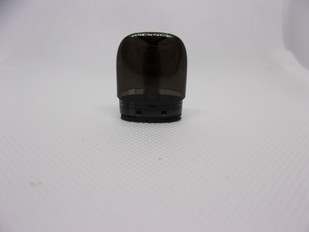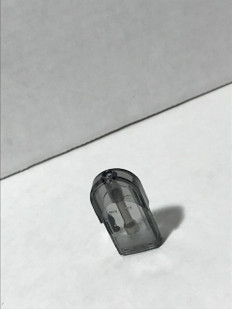- Home
- The Vape Mall Blog
- Should You Be Taking CBD for Vertigo?
Should You Be Taking CBD for Vertigo?
Posted by on

Vertigo is a highly disruptive condition characterized by its episodes in which a person feels dizzy to the point that their sense of equilibrium can be completely thrown off. The dizzy spells associated with vertigo can become chronic and severe, greatly interfering with a person’s quality of life while preventing them from properly executing tasks at work and around the home. While vertigo is a condition that is relatively understood by the medical community, still, a good number of people wish to try to treat it on their own, which is why more and more sufferers are turning to cannabidiol (CBD) in hopes that it can offer some form of relief.
What is Vertigo?
Vertigo is a condition that causes a person to experience relatively severe dizzy spells that are often described as a feeling as though the room is spinning. A person experiencing a vertigo episode may struggle to maintain balance and therefore trip, stumble or fall as a result, and the sensation can lead to feelings of motion sickness that may cause nausea. The length of an individual vertigo episode can vary, as can the frequency at which these episodes occur.
A person of any age can experience vertigo. Vertigo does not only occur due to an underlying condition, either. A person can get vertigo, for example, if they have been on a ride at an amusement park that involves spinning, or if they’ve consumed too much alcohol. However, vertigo becomes more common as a person ages, and can be a chronic condition due to an underlying issue. It becomes increasingly dangerous with age as well, as the falls that may occur due to the nature of vertigo episodes can lead to damage to the bones of the body.
What Causes Vertigo?
Chronic forms of vertigo usually pertain to issues within the inner ear, which is responsible for maintaining our sense of balance. These conditions become more likely to occur with age. While chronic vertigo may result from an injury to the inner ear, there are also specific underlying conditions that may be responsible which are unrelated to injury of any kind.
- BPPV (Benign Paroxysmal Positional Vertigo): Those who have BPPV have a chronic accumulation of calcium particles within the inner ear which interfere with its functionality.
- Vestibular Neuritis or Labyrinthitis: These remarkably similar conditions are of an inflammatory nature, and involve the tissue surrounding the inner ear to be perpetually inflamed. It is often the result of a viral infection which causes the surrounding tissue to become swollen.
- Meniere’s Disease: A chronic disorder in which fluid accumulates within the inner ear, and aside from vertigo, it can also cause uncomfortable pressure within the ear along with tinnitus and hearing-related issues.
Is Vertigo Treatable?
The good news is that most people who experience vertigo will find that the condition goes away on its own, as most commonly it comes from an isolated event such as a viral infection, an injury that heals by itself or specific circumstances that affect the inner ear such as consumption of alcohol or dehydration. Furthermore, the human brain has the ability to adapt to changes in the inner ear to recalibrate its sense of balance so that vertigo no longer occurs.
For those who cannot seem to get relief without the use of treatment, however, there are options. For those who have BPPV, there are physical therapy exercises that can limit the buildup of calcium in the ear. There’s also vestibular rehabilitation, which is a form of physical therapy that teaches the brain to regain its sense of balance.
Medications can be prescribed by a doctor that reduce the feelings of dizziness and nausea that may occur during a vertigo episode. And, drugs may reduce inflammation surrounding the inner ear, if that is the cause of the condition.
For anyone who have vertigo due to an injury, treatment may be required that involves a procedure that reconstructs or repairs the affected area.
What Can CBD Do Then for Vertigo Sufferers?
To get a better understanding, we first need to look at what CBD exactly is and its unique role in maintaining certain functions within the body.
CBD is the major compound in the hemp plant. As a distinctive type of plant compound known as a “cannabinoid”, it has the job of binding to cannabinoid receptors throughout the body’s various systems, which allows for a chemical reaction to take place that maintains the function of individual bodily processes through regulatory actions. Cannabinoid receptors belong to the endocannabinoid system, which keeps the body in a state of homeostasis through individual regulation of processes including sleep, digestive function, mood, inflammation and more.
Vertigo is a disorder of the nervous system, and cannabinoid receptors are prominent along the nervous system – CB1 receptors, to be exact. Cannabidiol can effectively bind to these receptors in a way that may potentially regulate the function of the inner ear and its response which involves dizziness and sometimes nausea. As of now, there are no studies specifically on the effects that CBD has on vertigo, but studies have found that CBD may help with nausea. And, based on its distinctive role in the nervous system, there is plenty of reason to believe it offers some level of potential at helping a person manage vertigo episodes.
How to Use CBD for Vertigo
If you wish to try CBD specifically for vertigo, there are a few key things that you need to consider to get the most out of this cannabinoid.
#1: Talk to Your Doctor
Yes, it is absolutely imperative that you seek the guidance of a doctor when it comes to using CBD specifically for this condition. This is particularly true if you are taking medications for vertigo, or for any other condition for that matter. Cannabinoids may suppress the CYP3A4 enzyme needed to metabolize many commonly prescribed drugs.
#2: Take CBD Daily
Because cannabinoids have a cumulative effect on the body, it is best to take CBD as part of a daily routine to maintain the right levels of the cannabinoid in the system, which may become more useful against vertigo over a period of consistent use.
#3: Use an Internal Method
Opt for a CBD-based product that is taken internally, rather than a topical, as only internal methods supply the nervous system with cannabidiol to potentially balance the function of the inner ear.
CBD for Vertigo: A Natural, Holistic Compound Worth Trying
So, based on what we know about cannabidiol, it’s worth trying if you’re dealing with vertigo. CBD is nontoxic to the body and widely available in different formulas, strengths, and delivery methods here at the Vape Mall. Remember, once again, talk with your doctor to find out what kind of hemp-based product may be right for you.
 Loading... Please wait...
Loading... Please wait...



















